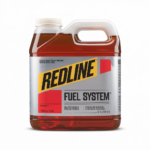Introduction
The In-Line Fuel Filter ensures your vehicle runs smoothly and efficiently. Often overlooked by car owners, this small but vital component works tirelessly to protect your engine from harmful impurities in the fuel. Without a properly functioning in line fuel filter, contaminants like dirt, rust, and debris can cause severe damage to your engine, leading to costly repairs and decreased performance. In this article, we will dive deep into the importance of the in line fuel filter, its function, how to maintain it, and why it is essential for your vehicle’s longevity and optimal performance.
What Is an In-Line Fuel Filter?
An In-Line Fuel Filter is a small but essential part of your vehicle’s fuel system. Positioned along the fuel line, it acts as a barrier between the fuel tank and the engine, filtering out harmful impurities that could disrupt the engine’s smooth functioning. The fuel filter catches dirt, rust, and other foreign particles, ensuring that only clean fuel reaches the engine. Without it, these contaminants could clog fuel injectors, damage the fuel pump, and severely hinder the engine’s overall performance.
The design of the in line fuel filter makes it easy to replace and maintain, ensuring that your vehicle continues to run smoothly for years. It plays a significant role in maintaining the overall health of your car’s fuel system, keeping fuel injectors clean, and preventing wear and tear on engine parts.
Why Is the In-Line Fuel Filter So Important?
The primary purpose of the In-Line Fuel Filter is to protect the engine from contaminants that could otherwise cause severe damage. Dirt and debris can accumulate in the fuel tank for various reasons, such as low-quality fuel or environmental factors. Without a functioning filter, these impurities travel through the fuel line, affecting fuel injectors and the fuel pump. When this happens, engine performance can suffer, and the risk of breakdowns increases.
A clean and well-maintained in line fuel filter ensures that only pure fuel reaches the engine, leading to smoother operation, improved fuel efficiency, and reduced engine wear. The filter also prevents the buildup of sediment, which can clog up the fuel system, making it harder for your engine to function correctly.
How Does an In-Line Fuel Filter Work?
The In-Line Fuel Filter filters out contaminants from fuel as they pass through the fuel line to the engine. It typically has a fine mesh or paper element that traps dirt, rust, and other particles. As fuel flows through the filter, these harmful elements are caught and removed, allowing only clean fuel to pass through to the engine.
Fuel systems are under constant pressure, and the filter must withstand this pressure while performing its job effectively. High-quality in line fuel filters are designed to handle these pressures without failing, ensuring that they continue to function correctly even under demanding conditions.
The Role of an In-Line Fuel Filter in Engine Performance
The in line fuel filter is not just about keeping your engine clean; it is also about maintaining optimal engine performance. When contaminants are allowed to enter the engine, they can clog up fuel injectors responsible for delivering fuel to the engine cylinders in the correct amounts. Clogged fuel injectors can cause poor fuel atomization, leading to incomplete combustion, reduced power, and a noticeable drop in fuel efficiency.
A high-quality in-line fuel filter ensures the fuel entering your engine is free from harmful particles. This leads to better combustion, more power, improved acceleration, and a smoother driving experience. A clean fuel system is essential for getting the best possible performance from your vehicle, whether driving around town or on a long road trip.
Signs Your In-Line Fuel Filter Needs Replacement
Like any other vehicle component, the in line fuel filter must be replaced periodically. Over time, the filter becomes clogged with dirt and debris, which can limit its ability to function effectively. If you notice any of the following symptoms, it may be time to replace your in line fuel filter:
Reduced Engine Performance: A clogged filter can reduce engine power, making your vehicle feel sluggish or unresponsive when you press the accelerator.
Difficulty Starting the Engine: If the filter is blocked, fuel flow to the engine may be restricted, making it harder to start the vehicle.
Frequent Stalling: A faulty filter can disrupt the fuel supply, causing the engine to stall, especially at low speeds or while idling.
Poor Fuel Economy: If your fuel system is clogged, the engine may struggle to run efficiently, decreasing gas mileage.
Engine Misfires or Rough Idling: Contaminated fuel can cause your engine to misfire or idle roughly, signaling that the fuel injectors are not receiving the proper amount of clean fuel.
If you notice any of these symptoms, it is essential to inspect and replace the in-line fuel filter as soon as possible to prevent further damage to your motor and fuel framework.
How to Replace an In-Line Fuel Filter
Replacing an in line fuel filter is a relatively simple task that can be done with essential tools. Here is a step-by-step guide to help you replace your in line fuel filter:
Turn off the Engine: Before working on the fuel system, ensure that your engine is turned off and the vehicle is parked safely.
Relieve the Fuel Pressure: Disconnect the fuel pump fuse or relay to relieve pressure in the fuel system. This step is essential to avoid fuel spray when removing the filter.
Locate the Fuel Filter: Consult your vehicle’s manual to find the location of the in line fuel filter. It is usually positioned along the fuel line, either near the fuel tank or the engine.
Separate the Fuel Lines: Utilize the proper instruments to detach the fuel lines from the channel. To avoid spills, be prepared to catch any excess fuel in a container.
Remove the Old Filter: Remove the old in line fuel filter and discard it properly. Check the direction of the flow arrow on the filter to ensure the new filter is installed in the correct orientation.
Install the New Filter: Place the new in line fuel filter in the same position as the old one and reconnect the fuel lines securely.
Test the Vehicle: Start the engine and check for leaks around the fuel filter. If everything is working correctly, the engine should run smoothly without any issues.
Maintaining Your In-Line Fuel Filter
Regular maintenance is essential to keep your in-line fuel filter functioning correctly. Depending on your driving conditions and fuel quality, the filter should be replaced every 20,000 to 40,000 miles. If you frequently drive in dusty or dirty conditions, you may need to replace the filter more often.
High-quality fuel is also essential to minimize the chances of contaminants entering the fuel system. Keeping your fuel tank clean and using fuel additives can extend the lifespan of the in line fuel filter.
Benefits of a High-Quality In-Line Fuel Filter
Investing in a high-quality inline fuel filter offers several benefits, including:
Improved Engine Performance: A clean fuel system ensures optimal combustion, providing more power and smoother performance.
Extended Engine Life: The in-line fuel filter protects the engine from harmful contaminants, helping reduce wear and tear on critical components.
Better Fuel Economy: A properly functioning filter improves fuel efficiency, saving you money on gas over time.
Reduced Maintenance Costs: A good in-line fuel filter can help avoid costly repairs by preventing clogs and engine damage.
Conclusion
The In-Line Fuel Filter may seem insignificant to the fuel system, but its importance cannot be overstated. By guaranteeing that primary clean fuel arrives at your motor, the In-Line Fuel Channel safeguards your motor, further develops execution, and upgrades eco-friendliness.Regular maintenance and timely replacement of the in line fuel filter can extend the life of your vehicle and prevent costly repairs. Make sure to give this essential component the attention it deserves to ensure your car stays in top condition for years.







